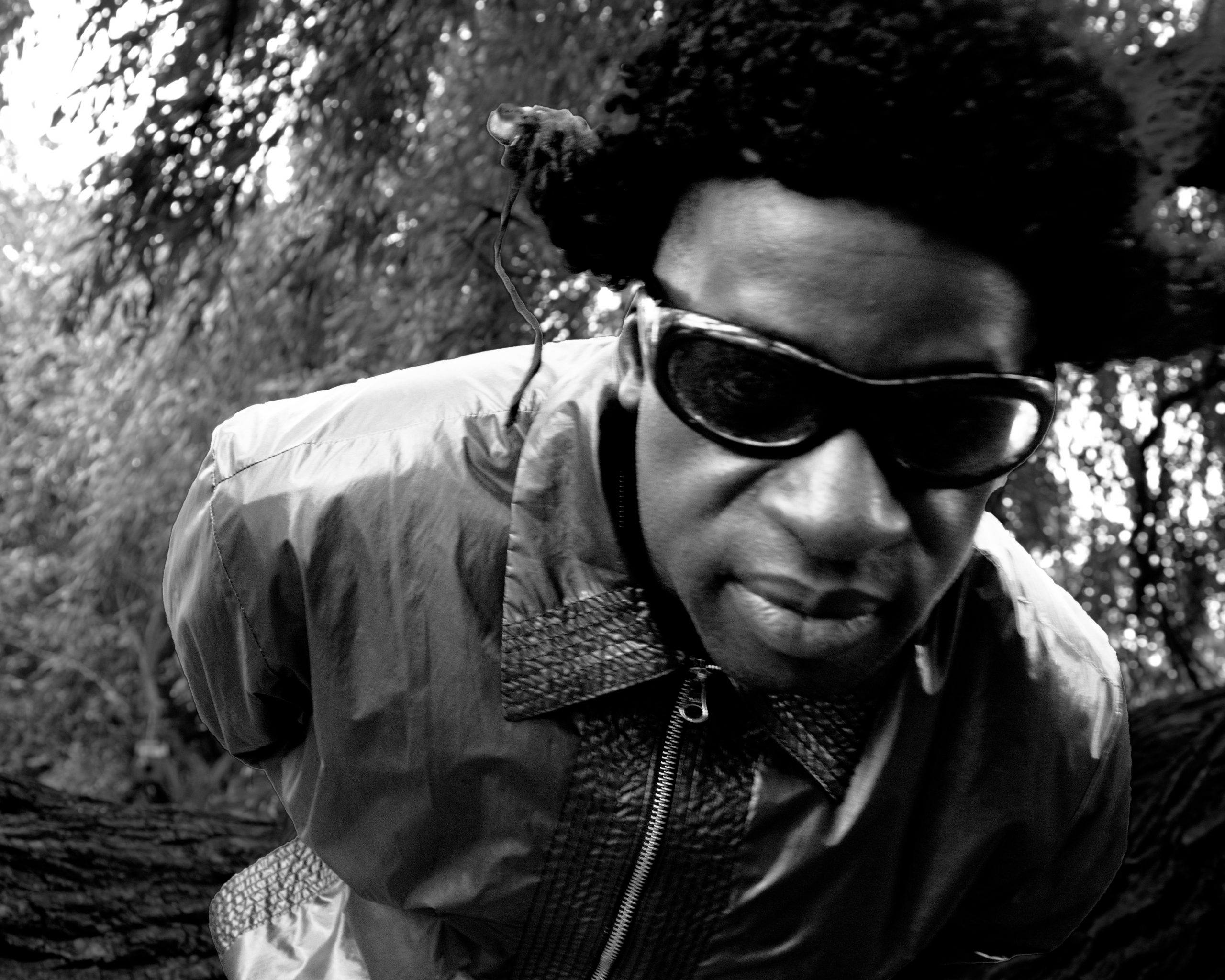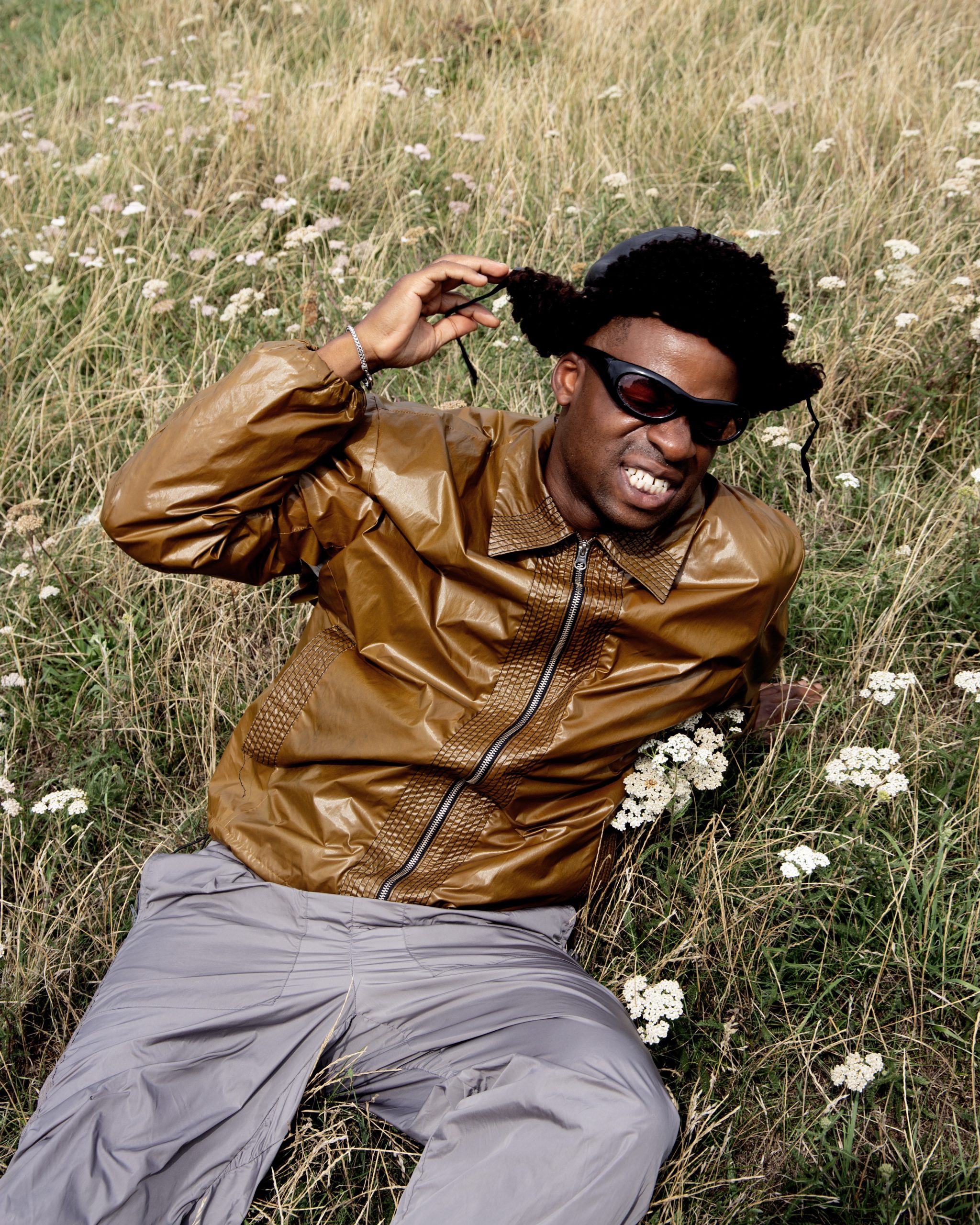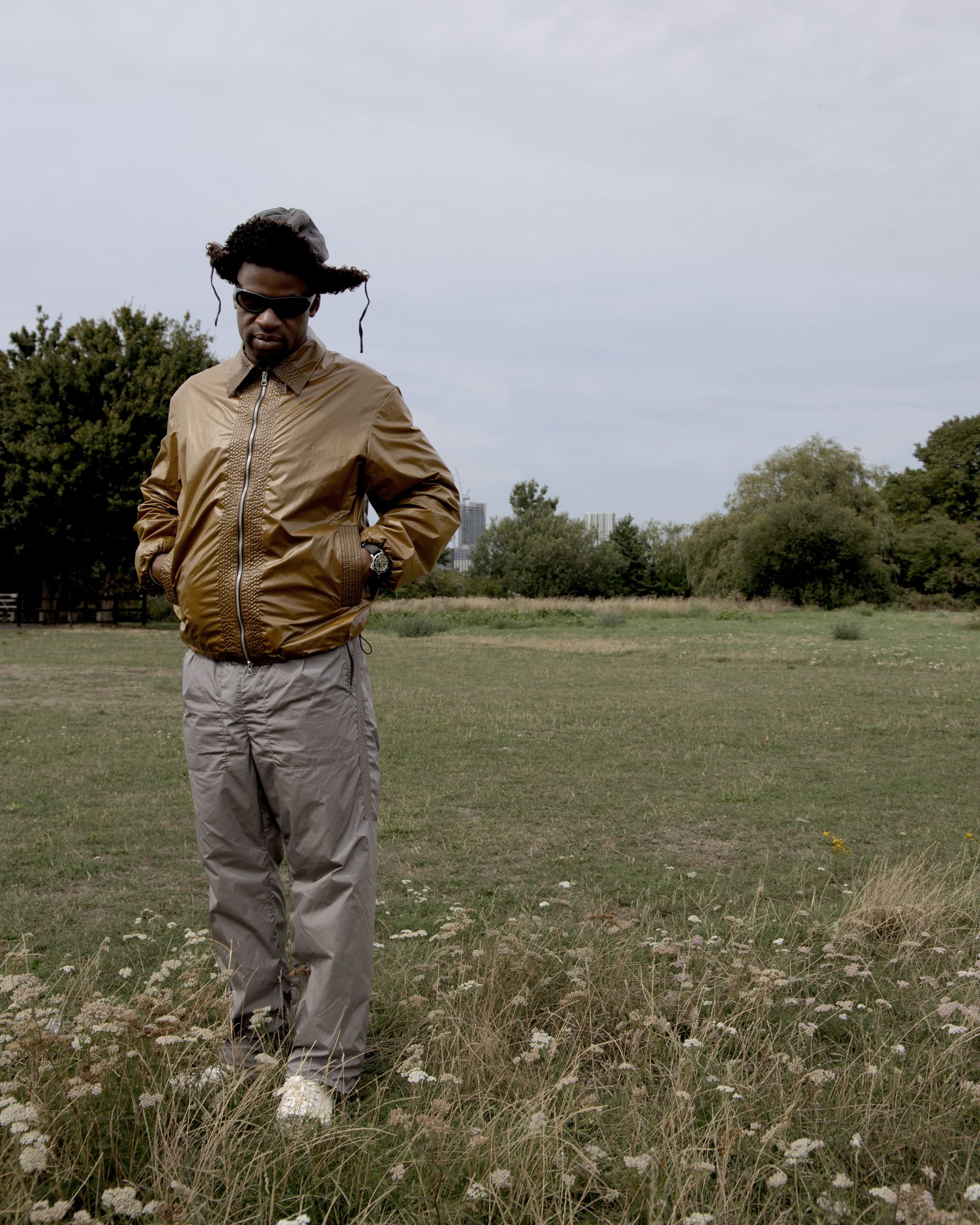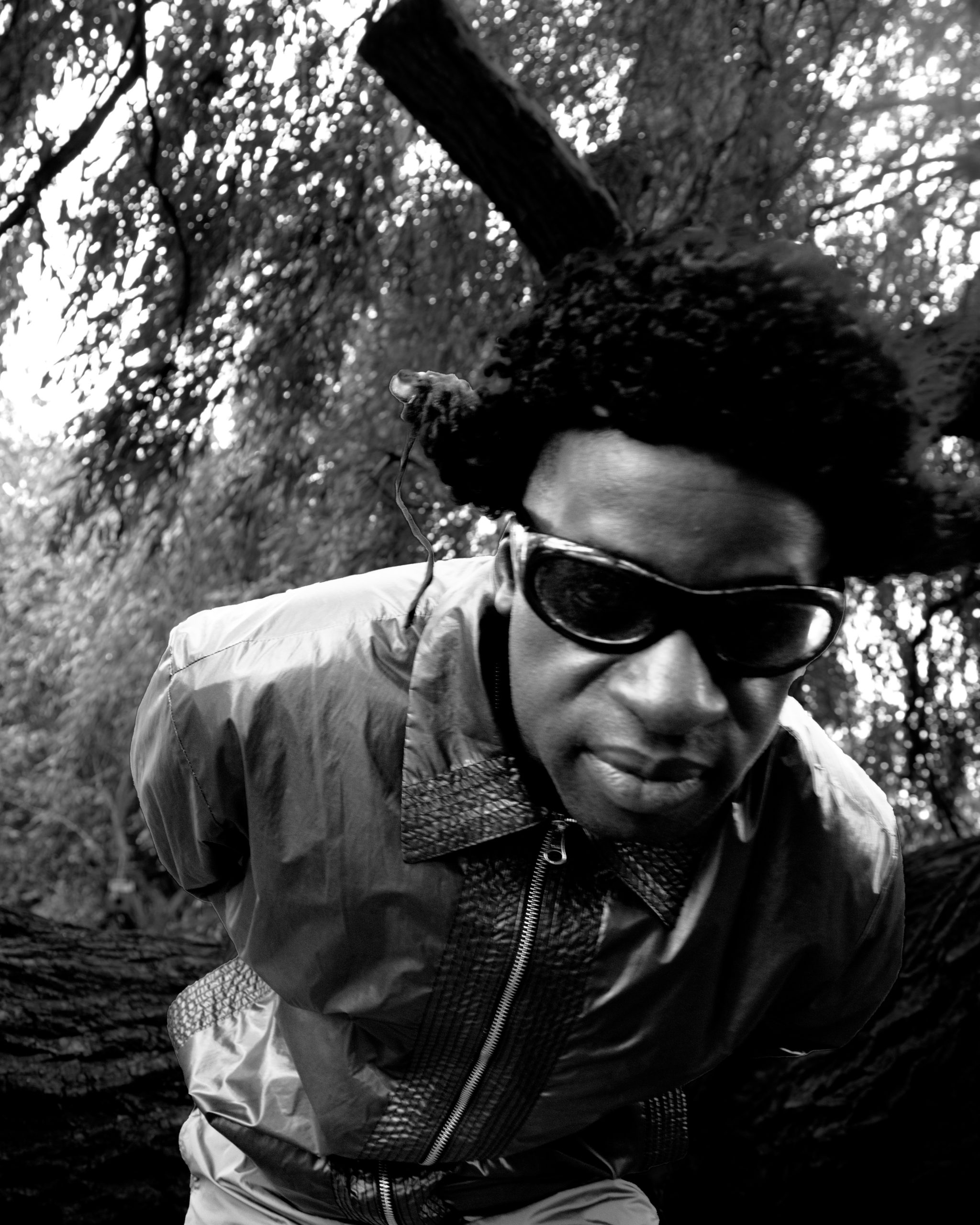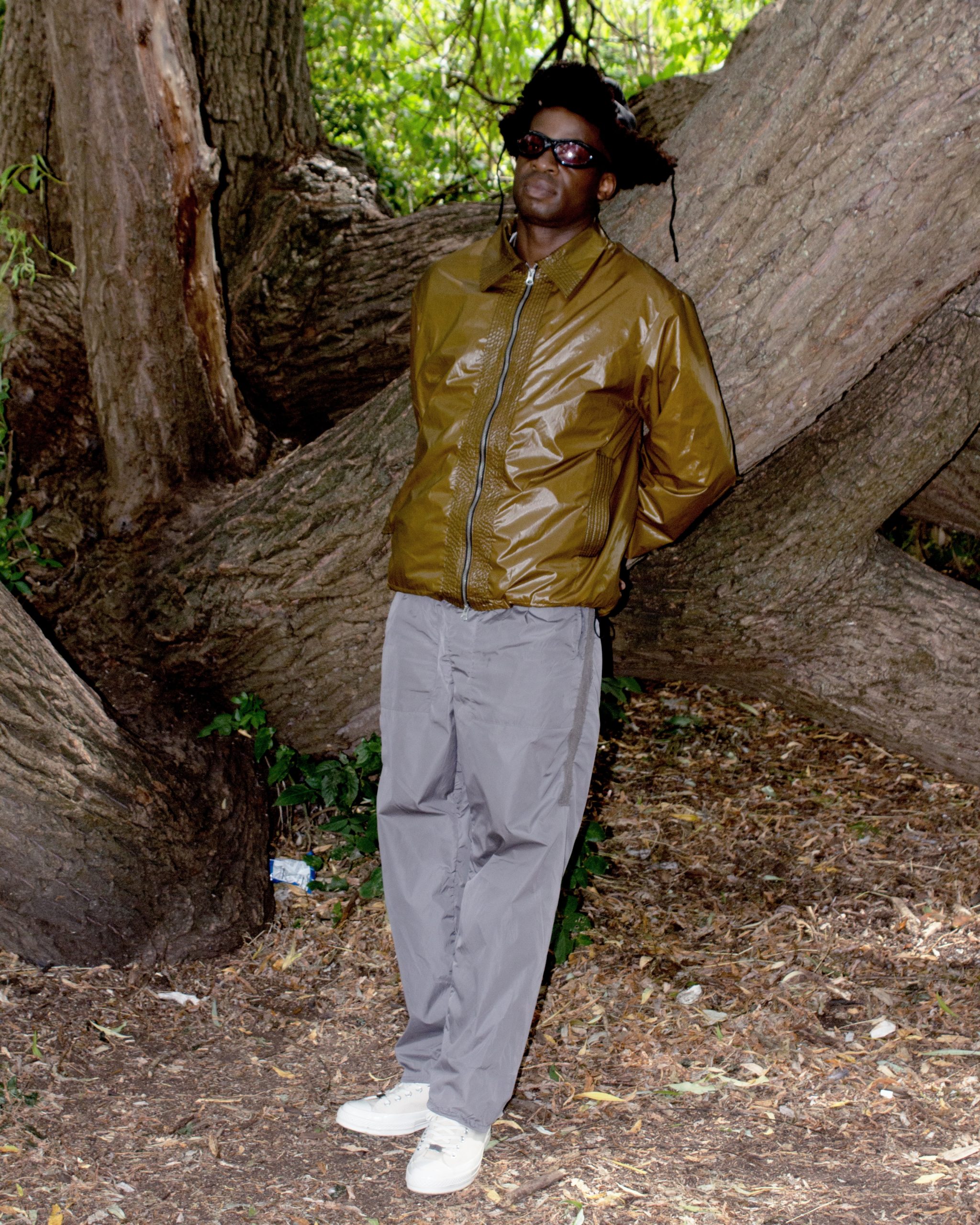After reimagining the outdoors with Flock Together, Ollie Olanipekun is set to push the boundaries of nature once again with his new initiative, OpenAREA.
Growing up working-class in the city, nature often felt distant and inaccessible for Ollie. But after seeing the success of his first nature-oriented initiative, birdwatching collective Flock Together, Ollie felt a desire to bring fresh, imaginative ways to connect with the natural world.
OpenAREA aims to transform the way we experience green spaces through cultural programming, designed to spark emotional connections with nature. Launching on September 30th in a central London nature reserve, its debut will feature cultural programming that refocuses London’s abundant creativity, talent, and ambition into beautiful, underused green spaces in the heart of the city.
Ahead of the launch, we sat down with Ollie to talk about his own relationship with the outdoors, the importance of imagination in inner-city environments, and his vision for OpenAREA.
How has your relationship with nature changed over time, particularly growing up in London?
I first experienced nature as a kid when my parents signed me up for the Cub Scouts. Honestly, I hated it, so much so that I got kicked out after a year. But looking back as an adult, I now realise how important that early introduction was. Growing up working-class and in the city, nature often felt distant and inaccessible, rarely framed as a space for people like me. If your school didn’t run Duke of Edinburgh, you didn’t grow up in the countryside, or your parents didn’t take you camping or hiking, it was unlikely you’d form a real connection with the outdoors. It just wasn’t presented as something that belonged to you.
You’ve spoken about wanting to bring the change we desperately need in our relationship with nature – what do you think that is?
I believe nature already has all the answers; the challenge is learning how to look for them. And that starts with access and confidence: knowing that these spaces belong to you as much as anyone else. For too long, nature has been presented in an “othering” way, whether it’s watching BBC nature shows where wildlife feels exotic and far away, or seeing the outdoors framed as an elite, high-adrenaline sport in remote mountains. On top of that, the conversation around the environment is often dominated by doom and gloom, which can feel overwhelming and alienating. What I want to do is shift the tone completely: make nature open, joyful, and celebratory, so that however you choose to engage with it is valid and welcomed.
What motivated you to create OpenAREA at the outset?
When I launched the birdwatching collective Flock Together in 2020, I was blown away by the response. It proved there was a real appetite for a fresh way to connect with nature. Birdwatching itself isn’t new, humans have been doing it since the beginning of time but we reframed it through a creative, cultural lens. We made it feel exciting, stylish, and accessible. OpenAREA builds on that same idea but taking it even further: bringing culture back to nature and reimagining how we experience and share these spaces in ways that feel relevant today.
How do you see the next few years playing out for the initiative? What are your immediate plans?
We launch at the end of September with a week-long takeover of a central London nature reserve. When you think of cultural programming, it’s usually tied to traditional venues like galleries or theatres. OpenAREA flips that idea by bringing the same level of creativity, talent, and ambition into beautiful, underused green spaces right in the heart of the city. Over the next few years, the goal is to expand that model nationally and internationally, creating new ways for people to connect with nature and each other.
There are many industries, at the top level, that remain largely pale and stale. Is it the same within nature?
Absolutely. I work with many of the UK’s biggest conservation organisations and charities from the RSPB to the WWF, they all face the same challenge: how to engage the next generation. The sector often moves slowly, but my experience with Flock Together and my background working for major cultural brands gives me a unique perspective on how to innovate and reach audiences who’ve previously felt excluded.
What have you learned in the last five years of Flock Together that you’ve used to drive OpenAREA?
The biggest lesson? Make it sexy. Make it aspirational. Creativity is the bridge. You can have the most important environmental message in the world, but if people can’t see themselves in it or feel inspired by it, it won’t land. With Flock Together, we learned how to repackage these experiences so they feel fresh and culturally connected and that’s exactly what we’re doing with OpenAREA.
Why is it so important to reframe people’s relationship with nature?
Because right now, environmental conversations often skip a crucial step: connection. We expect people to care about something they’ve never felt part of. If you don’t have a personal, emotional link to nature, why would you be motivated to protect it? Reframing the relationship is about building that link first, making nature feel familiar, welcoming, and relevant so that care and action follow naturally.

Can you talk some more about each of the separate days of the activation?
Across the week-long takeover, we’ve got a packed programme designed to spark curiosity and creativity. Highlights include unique workshops and performances from Will PGNA of All Terrain Training (powered by Salomon), an innovative showcase with Levi’s, installations from artist Elliot Fox, and much more. Each day is designed to unlock imagination and show people new ways to experience and think about nature.
Why was it so important for you to host the event in the heart of the city?
Accessibility, first and foremost. Hosting it in central London removes barriers, you don’t need to travel far or have specialist gear to take part. It also challenges the perception that cities are disconnected from nature. London, for instance, is far greener than people realise it’s even officially classified as a National Park, though most Londoners don’t know that. By activating urban green spaces, we can shift the narrative about what nature in the city looks like.

What’s the end goal for OpenAREA?
The dream is for OpenAREA to become a global leader in bringing culture into underused outdoor spaces, a platform known for creating new access points for anyone to build a deeper connection with nature, with each other, and ultimately with themselves.
The event features an extensive list of programming that runs from Tuesday to Sunday. Please discuss with us everything you’ve merged together for this showcase and why it was so important to host such a diverse range of creatives, ideas & workshops.
We’ve brought together around 30 collaborators across the week, each offering their own unique take on nature. Having such a wide range of voices was essential because I want to create as many access points as possible, so that everyone who comes finds a story, perspective, or approach they can connect with. This project is far bigger than me; my role is simply to build the stage and let others bring it to life.
Images by
